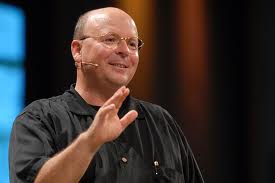Today I’m so happy to have a guest post from my friend Kenneth Camp. Kenneth and I went to the same college, lived in the same town and were both bloggers, so we became quick friends. He has an amazing story and he’s going to share just a bit of it here.
My wife and I decided 3 ½ years ago to embark on a journey. We had no idea how to begin or where it would take us. But we did feel that God was leading us down the path.
At the time we had been married for about 22 years and had no children of our own. Years before we pursued infertility treatments on two different occasions. Personally, I was ready to move on without ever having our own children. Then God interrupted my plan.
We had a plan to return overseas as missionaries when God impressed on our hearts a desire to look into foster care before we left the states. I didn’t know then or now how He reconciles domestic foster care/adoption with foreign missions. But it seemed clear to us that He wanted us to check into it.
The short story is that my wife and I obtained our license to foster and adopt in January 2011. Our first foster placement was an eight-month-old boy in June 2011. We thought he would reconcile with someone in his biological family. However, we ended up adopting him 15 months later.
As you can imagine, we learned a lot through this. I write about the entire experience in my book, Adopting the Father’s Heart.
Here I share 5 lessons I learned (I really am still learning!) from this experience:
How to Stay in the Moment
Because our foster son was originally a foster only placement, he potentially was returning to his family at any time. We were told numerous times that he was reconciling with both his parents, then his father, and then his paternal grandmother.
The only way I knew how to love my foster son and give him the care he needed was to avoid thinking about the day he might leave our home. Each day he lived with us, on that day, he was my son, so I loved and treated him as my son. I trusted that God would give me the grace needed for the when he left.
Need for Support and Encouragement
We quickly learned that we needed a network of support around us to help us care for our foster son. This included:
- Logistical support – clothes, age-appropriate items, toys
- Emotional support – our lives changed overnight. We needed encouragement to make it through this alteration.
- Network of Expertise – We also needed to network and learn from other families and agencies that had foster care experience.
Our Efforts Effected More than One Child
When our foster son was placed with us, I was focused on him alone. Soon I realized that our fostering him intersected our lives with an unknown number of other people.
- Biological family. I really did not think I would have to meet and interact with our foster son’s family. That myth was quickly dispelled. Not long after, I was interceding for them.
- Social workers, attorneys, and others associated with the case. The fact is case workers are in your home a lot when you foster. And, you have mutual involvement in a traumatic event in a family’s life.
- Friends and family. Our decision to foster and potentially adopt continues to influence those in our circle. Many now consider how they can care for at-risk children.
Need to Live Selfless
As you can imagine, married for over 20 years with no children created several selfish tendencies. I don’t know how I could have avoided that. For example, I liked going and coming whenever and wherever I wished, the quietness of our home, and getting to eat a meal without interruption.
Parenting is a selfless act. Parenting a foster child intensifies selflessness.
How to Let Go
A lot of my friends right now are sending off their children to college for the first time. I see them wrestle with the fact that their homes will never be the same. They are letting go.
Foster parents live this each day because the child they love can leave their home at any time.
This takes sacrifice and an open heart. Yes, it is painful. But, this sacrifice reflects the heart of our Father.
That is why I entitled my book, Adopting the Father’s Heart. To care for orphans and at-risk children requires the heart of our Heavenly Father.
Check out Kenneth’s blog and his new book at kennethcamp.com.









 1. Don’t participate, merely consume.
1. Don’t participate, merely consume.



This wonderful post by previous Seminary Dropout guest, Roger Olson, and edited by Scot McKnight is a great companion to my “5 Ways to Be Unsatisfied with Your Church” post.
Generally the feedback from the post was positive, but there was some criticism, much of it from people who had been burned by the church and even experienced some sort of spiritual abuse in the past. My only response to those criticisms is that there is no reason why my post and those experiences & complaints can’t both be legitimate. It’s not an either/or situation, rather it’s both/and.
That’s why this post by Olson is also good to keep in mind when you experience a rift in your church life.